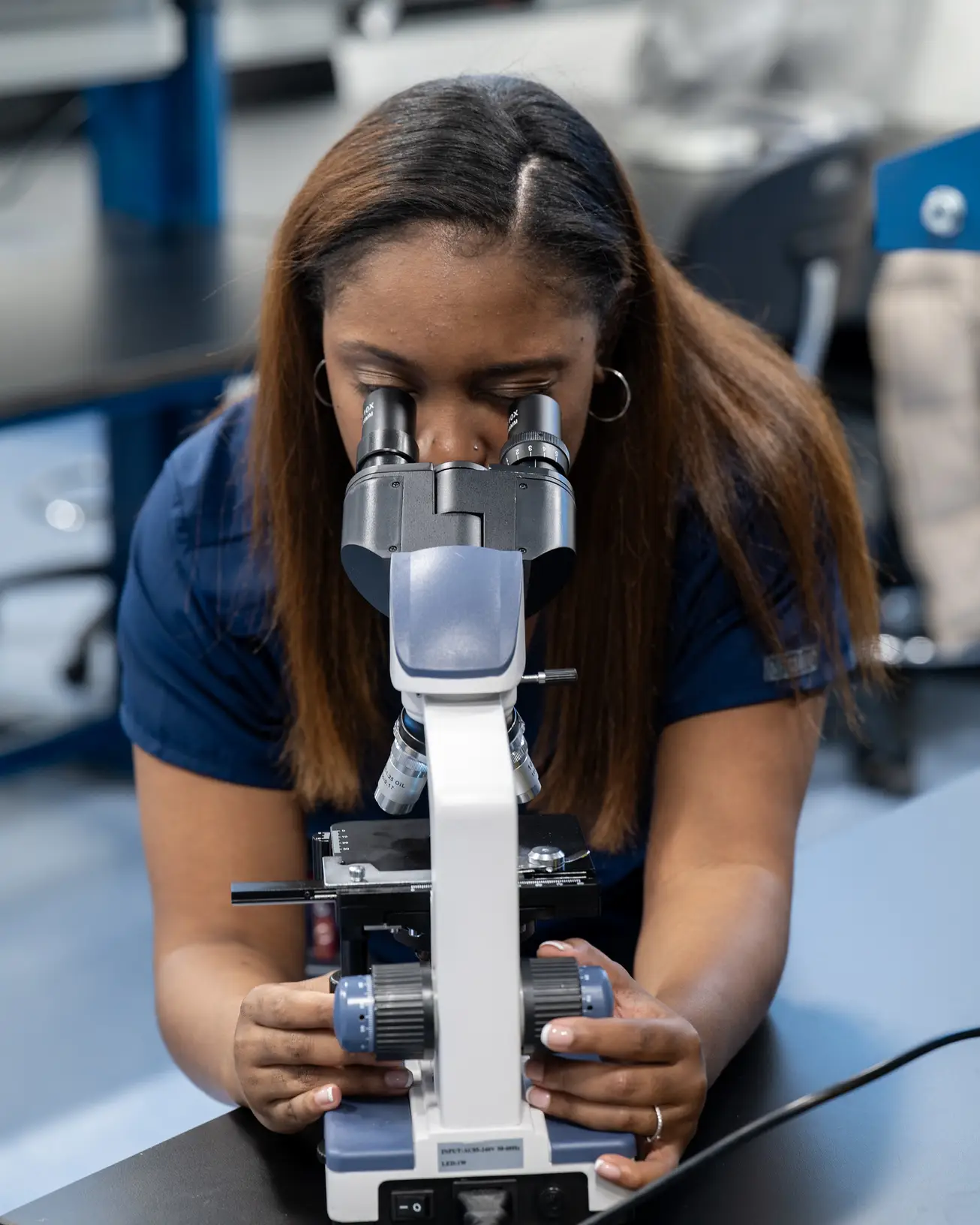Medical laboratory scientists help ensure proper treatment is provided by interacting
with healthcare team members including:
Physicians, physician assistants and nurse practitioners
These are the primary ordering providers that request laboratory tests. As a patient,
these orders typically come from the primary clinic, emergency rooms, and even hospitalists
providing care during inpatient encounters.
Nurses
Nurses have set orders that are provided by the physicians. Often, orders will list
specific instructions to increase, decrease, or change a treatment based on laboratory
results. Nurses will often reach out to the lab to request a STAT result—which means
immediately or without delay—in order to make critical adjustments for treatment.
Pharmacists
Often patients will receive certain medications that require monitoring of both the
medication level and enzymes that are present in the patient’s blood. This enables
the pharmacist and physician to determine whether the patient is responding favorably
to the treatment. Pharmacists are also in contact with medical laboratory scientists
when monitoring certain organisms for antibiotic resistance. Emergence of drug resistant
microorganisms is a large source of communication with pharmacists and medical laboratory
scientists over the last decade.
Obstetricians, nurse practitioners, midwives and nurses
From prenatal care to the birth process, medical laboratory scientists play an integral
role in maternal and infant care. Blood work is performed during the prenatal process,
as well as cultures, and fluid analysis is done to ensure a healthy mother and child.
The results can provide medical providers with critical information to determine the
overall health and wellness of the expectant mother, the fetus, as well as communicate
the potential for genetic anomalies that may arise.
Operating room personnel, critical and intensive care units
Critical information is often needed during acute procedures or conditions. The medical
laboratory scientist is often pushed to rapidly perform routine testing STAT. One
common need that arises from the operating room and critical care units is the need
for blood typing and crossmatches. The hospital blood bank is staffed with highly
trained medical laboratory scientists that perform testing to guarantee that the blood
units are compatible with the patient’s blood type and other antigens and antibodies
that they possess.
Radiology
Some procedures in radiology require the administration of dyes for contrast. In order
to ensure safe administration of the contrast, oftentimes the radiology technologists
will request medical laboratory services prior to administering certain contrast or
dyes.
Oncology and nuclear medicine
Medical laboratory scientists often perform testing on oncology patients as well as
assist in certain procedures during diagnosis such as bone marrow biopsy. Oncologists
often use molecular testing, and due to this, the training of the medical laboratory
scientist was adjusted to incorporate more genetic and molecular test education to
compensate for the advancements.
Dialysis
Dialysis patients require constant monitoring to determine the effectiveness of the
dialysis procedure. Medical laboratory scientists provide results and communicate
with the care team in order to provide optimal care.
Biomedical team
Hospital systems often employ a biomedical team to provide constant monitoring over
equipment and services needed for the entire facility. One critical duty that this
team oversees is the sterile conditions of equipment, water and other items involved
in patient care. The samples are submitted to the laboratory, and medical laboratory
scientists perform cultures and other testing needed to ensure safe patient care.


